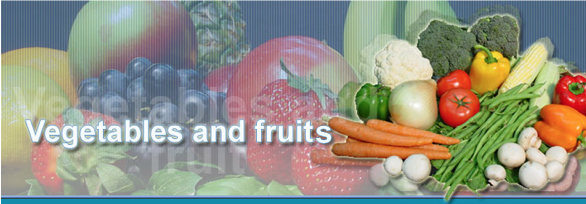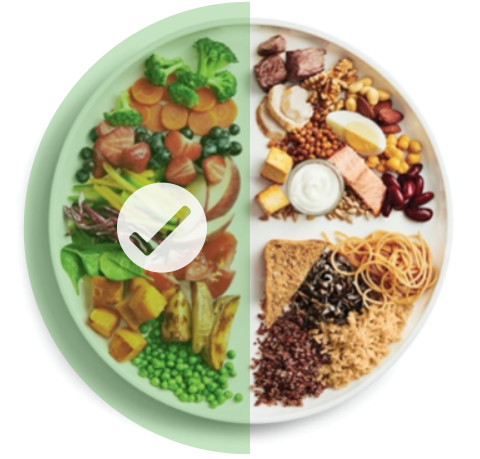1. Vegetables and Fruits
Have plenty of vegetables and fruits
When putting together a healthy meal, half of your plate should include vegetables and fruits. Include vegetables and fruits at every meal and snack.
Eat a variety of vegetables and fruits. Colourful vegetables and fruits are richer in certain important nutrients. Enjoy salads, broccoli, spinach, squash, sweet potatoes, carrots, cantaloupe, and oranges.
Vegetables and fruits can be eaten fresh, raw, slightly cooked, canned, or frozen.
Choose canned vegetables with little or no sodium added. You can drain and rinse to lower the sodium. Choose canned fruit with little or no added sugar.
Fruit juice is high in sugar. Have a glass of water instead with whole or cut vegetables or fruits.
Make it easy to snack on vegetables and fruits by washing and slicing them ahead of time. Prepare extra vegetables when you’re making a meal, then freeze or refrigerate so it’s easy to add them next time. For other ideas to help you eat more vegetables and fruits, click on this link.
Test Your Knowledge
 |
||||||
| Why is it important to eat vegetables and fruits. The following exercise will help you to discover their importance. Select and slide each term to its proper place. |
||||||
|
Folic acid
|
Fibre
|
Vitamin A
|
Iron
|
Vitamin C
|
||
| Nutrient | Functions | |||||
| Helps to produce red blood cells and to build your baby's blood and tissues. | ||||||
| Helps build bones and teeth and keeps eyes and skin healthy. | ||||||
| Keeps your gums and blood vessels healthy and helps you fight infections. | ||||||
| Your baby stores his or her own reserves which will last for the first four to six months of his or her life. Necessary for your blood to be healthy. | ||||||
| Helps your bowels to function well. Necessary for health in general. | ||||||
